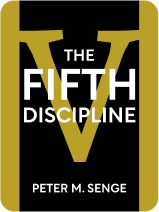

This article is an excerpt from the Shortform book guide to "The Fifth Discipline" by Peter M. Senge. Shortform has the world's best summaries and analyses of books you should be reading.
Like this article? Sign up for a free trial here.
Why is personal growth important in the workplace? How can leaders encourage personal growth among employees?
Many companies don’t encourage personal growth because they can’t easily measure its effectiveness. Instead, those companies expect employees to focus on their day-to-day tasks and to do them “by the book,” with no room for personal growth. In doing so, they stifle people’s potential and enthusiasm.
With this in mind, here’s how you can inspire a commitment to personal growth among your employees.
Personal Growth in the Workplace
When every part of your company—in other words, each person within it—is committed to constant personal growth, the organization as a whole will naturally grow and improve.
(Shortform note: A survey from the Society for Human Resource Management confirms what Senge says here. The survey found that the single biggest contributing factor to job satisfaction is the chance to use skills and abilities—in other words, the chance to face challenges and improve by doing so. This trend held true regardless of the responders’ ages, genders, or tenures.)
According to Peter Senge, the author of The Fifth Discipline, to encourage personal growth in the workplace, you need to build the company culture around it from the ground up. In short, every member of your company, as well as the company’s policies, must support honesty, creativity, and challenging the status quo.
However, if you’re not in a position to do that, you can also try to start it as a grassroots movement within the organization: Practice personal growth yourself, regardless of whether or not the higher-ups encourage it, and try to get your coworkers to do the same. Hopefully, your supervisor will take note of your department’s improved performance and ask how you accomplished it. That will begin an organizational change from the bottom up, rather than from the top down.
| Personal Growth for Its Own Sake As a partial counterpoint to Senge, entrepreneur Ray Dalio writes in Principles: Life and Work that self-improvement is its own reward. In other words, if you see personal growth as just a means to an end—such as earning more money or being more respected—you’ll soon become frustrated with it. This is because personal growth is a difficult process, and the satisfaction you get from material gains drops off quickly once your basic needs are fulfilled. Therefore, Dalio believes that you should pursue personal growth and improvement as an end in itself. He believes that the satisfaction you get from improving your own skills and knowledge is far greater than the satisfaction you’d get from ever-increasing wealth. In other words, from Dalio’s perspective, the growth itself is the goal—Senge’s promises of improved job performance on a personal level and a more successful company on the organizational level are just side effects. |

———End of Preview———
Like what you just read? Read the rest of the world's best book summary and analysis of Peter M. Senge's "The Fifth Discipline" at Shortform.
Here's what you'll find in our full The Fifth Discipline summary:
- Why an organization should encourage its members to constantly learn and develop their skills
- The five disciplines for creating an evolving organization
- Why you should constantly assess and update what you think you know






